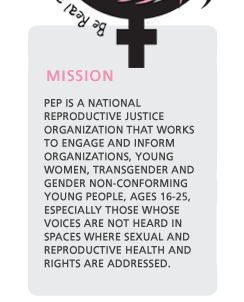When I was younger, my vacations were very different from those of my friends at school. While they vacationed at the beach, went camping, or went to Disneyland, I went to India. These visits were often comprised of getting acclimatized to the heat, enduring the discomfort of a million bug bites, and sharing a tiny house with countless relatives. To make matters more difficult, upon my return to the United States, I never had the predictable story of seeing the Taj Mahal or some other iconic Indian tourist attraction, and could only entertain with stories of estranged relatives. But one of those trips was different. In retrospect, it was that trip that defined what I wanted to be when I grew up.
I was eight years old and I was visiting my grandmother in Madras. The summer loomed long � all the kids were back in school and my lack of language skills rendered the TV useless. Therefore, my dreams of a fun summer in another coun- try vanished. My grandmother had hired a servant for the house since she
was too old to do housework. Her name was Poonitha. She was in charge of keeping the apartment clean, chopping all of the vegetables for my grandmother, and preparing the dough for the fresh bread my grandmother made. In Poonitha, my grandmother found help in running her household. However, in Poonitha, I found a friend.
I spent my days with Poonitha. I waited for her arrival each morning at dawn. We exchanged few words but our conversation surpassed the barriers of language. She did everything with enthusiasm and I was eager to learn. She showed me how to grate the flesh from a coconut using a blade at- tached to a board. She taught me how to pick the freshest flowers from the bushes to take to the temple. She taught me to draw beautiful traditional decorations on the floor using just water and a white powder and a scrap of cloth. And so my summer continued, day after day.
After one day�s work, my grandmother wanted Poonitha to go to the bank. Not surprisingly, I went with her. After going to the bank, Poonitha informed me (in very slow Tamil) that she just had to stop at her own home to drop off lunch for her husband. In retrospect, Poonitha was probably only 19 or 20 years old. The idea that she may be married or have a family had never really crossed my eight-year-old mind.
She led me down an alley that stood next to the main road. This was the poorer part of the neighborhood. The alley was crowded with homes. There were women in tattered saris carrying vessels with water, and small children clung to their mothers and looked around with huge eyes. Men were lounging in doorways or sitting on large upturned pots. The lack of ventilation made the heat unbearable. The humidity in that alley made the heat a thing that enveloped all the space. In a crowded alley like that, the heat that you feelisn�t even a part of the surroundings. You feel it seeping through your hair and clothes and into your thoughts, andeven feelings. My hold on the end of Poonitha�s sari got even tighter.
Soon we were standing outside a small shack. With walls made out of scraps of wood and a low roof that was sheet metal, Poonitha entered her home. Consisting of only one small room with a large vessel filled with water to the side, the house stood in a sea of other similar homes. She dropped off the small parcel she had brought with her, folded a cotton sheet that had been abandoned in the corner, took my hand in hers and gave me a smile that I will never forget in my life.
Over the years, I have tried to explain the expression on her face to my mother or my sister, but have failed. She didn�t look embarrassed, apologetic, or even tired. Neither did she seem spiteful, angry, or irritated. Instead, she bore an expression that said, �This is my life. And I accept it.�
That vision of Poonitha in the small shack in an abandoned alley in Madras made a tremendous impression in my mind. Years later I am still amazed at her vitality despite living in those deplorable conditions. I had seen her impressive strength and her creative solutions around my home but was appalled at how few options intelligent women like her have in making a better life for themselves. Trapped by circumstances, these strong women end up as the backbone of their families and communities but still lead lives of hardship because of lack of education.
Strong women like Poonitha need education to increase their options. They need access to better healthcare so they can stay healthy and raise families that are healthy. I am truly convinced that the first step to empowering women is to give them economic independence and knowledge about their bodies so they can have a better role in their destiny.
Twelve years later, I am studying Biology and Public Policy at Carnegie Mellon University with hopes of going to medical school to study Women�s Health and Pediatrics. I found out about the Young Women�s Leadership Council through a summer internship with the National Women�s Health Network. When I read about their goals of giving all women a voice and educating them about their reproductive and health rights, I knew I had to get involved.
Sadly, I don�t know where Poonitha is. When I was ten, my grandmother moved in with my aunt and uncle in a rural area of Southern India. As it is with any servant in India, after the move, my grandmother lost touch with Poonitha. I always wonder about Poonitha. Did she have children? Does she still live in that same house? Did her indomitable spirit survive her harsh living conditions?
I have accepted the fact that I will probably never see Poonitha again. I will never get a chance to thank her for being my inspiration. Because of her, I am pursuing a career in women�s health. However, more importantly, because of her, my view of women�s health issues was forever changed. | 





